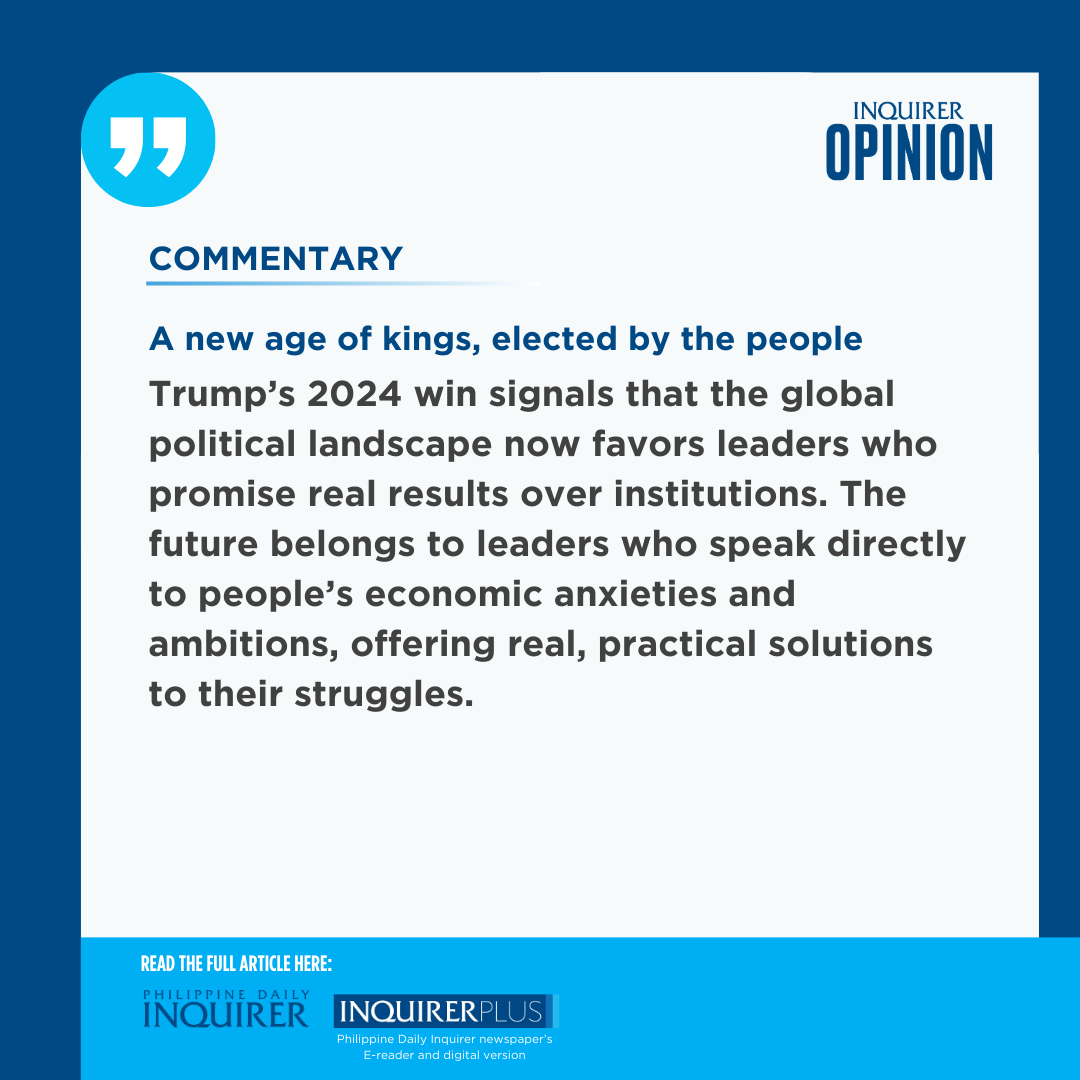
Donald Trump’s 2024 comeback shows that populism is here to stay, while liberal-democratic politics recedes into the background. This election’s surprising demographic shifts prove that voters want leaders who understand and will solve their hardships, not those who defend institutions—even if that institution is democracy itself. With Trump back in office, populism has taken center stage, signaling that liberal ideals may well be relics of the past.
The surprising shifts in voter demographics reveal a trend: people are hungry for leaders who understand their struggles, not defenders of systems. Trump made significant gains among voting blocs typically seen as Democratic Party strongholds—even among communities targeted by his own party’s rhetoric. Trump’s support among Latinos surged to 45 percent, up from 36 percent in 2020, with 54 percent of Hispanic men backing him.
Many Latino voters, facing rising costs and financial strain, were drawn to his promises of economic revival. Ironically, this shift came despite the MAGA movement’s push for stricter immigration measures, including escalated deportations and tighter border controls. For these voters, immediate economic relief took precedence over concerns about restrictive immigration policies.
Trump’s focus on jobs and financial security overshadowed the Democrats’ emphasis on social justice, institutional reform, and immigration reform. Vice President Kamala Harris, though herself a person of color, struggled to gain similar traction. Her support among Black voters declined, while Trump captured 20 percent of the Black vote in battleground state Wisconsin, a substantial increase from the 8 percent he received in 2020.
The “felon vs. prosecutor” narrative fell flat, and Harris’ background as a prosecutor didn’t help. Democratic messaging missed the real issues Americans cared about: inflation, jobs, and housing.
Policies took a back seat this election cycle, while rhetoric took center stage. Trump’s language was blunt but effective. Voters weren’t swayed by policy details or scandals—they didn’t care that he’s a convicted felon, an accused rapist, or even a known friend of Jeffrey Epstein.
What they saw was his connection to the everyday worker, his directness, and his focus on America’s needs. They didn’t mind that he was, in reality, a billionaire and a frequent liar who often puts his own interests first. Even Project 2025—a sweeping Republican initiative aiming to overhaul federal agencies by placing thousands of vetted Trump loyalists into key roles—didn’t deter voters.
For many, Trump’s vision of a revitalized economy and restored national pride eclipsed concerns about potential overreach. This election made one thing clear: voters don’t want candidates who preach institutional values. They want leaders who can lower grocery prices and make housing affordable.
Trump, with his unfiltered style, became that candidate. We’ve seen this before in the Philippines. Rodrigo Duterte’s raw rhetoric and “strongman” approach struck a chord with Filipinos tired of bureaucratic talk and “Dilawan” values.
People didn’t mind Duterte’s rough edges—they admired his toughness and willingness to shake things up. Ferdinand “Bongbong” Marcos Jr., though more polished, has tapped into this populist wave as well.
He’s presented himself as a practical problem-solver, unburdened by institutional constraints. His pledge to reduce rice prices to P20 per kilo struck a fundamental chord. Notably, the Philippines has yet to see a true populist emerge from the left.
In the US, Bernie Sanders and Alexandria Ocasio-Cortez have captured public imagination with calls for economic justice and health-care reform, but the Philippines lacks comparable figures. Leni Robredo, Kiko Pangilinan, and Risa Hontiveros are respected for their integrity and commitment to progressive causes, but they didn’t quite fit the bill. They’re perceived as part of the liberal elite, with messages that appeal more to educated, urban audiences than to the broader working class.
Their approach often emphasizes policy and institutional reform rather than the bold, relatable rhetoric that populist movements typically demand. This gap has left populism as a tool for elites rather than a vehicle for transformative and inclusive politics. Without a left-leaning populist who can connect emotionally with Filipino voters, progressivism has struggled to find a foothold.
Trump’s 2024 win signals that the global political landscape now favors leaders who promise real results over institutions. The future belongs to leaders who speak directly to people’s economic anxieties and ambitions, offering real, practical solutions to their struggles. Trump’s success holds a lesson for future leaders in the Philippines: stop clinging to outdated institutions, lofty ideals, and policy details, and start fighting for what people need right now.
Subscribe to our daily newsletter By providing an email address. I agree to the Terms of Use and acknowledge that I have read the Privacy Policy . —————- Mark Flores is a marketing professional in Angeles City.
.














